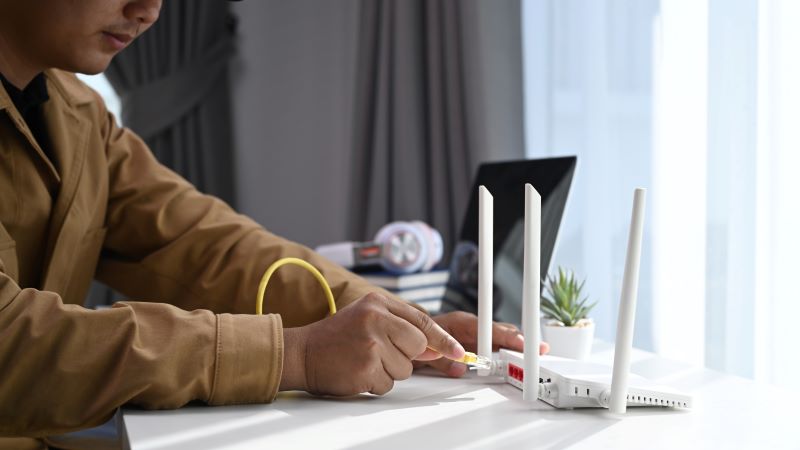Our Internet of Things blog series covers IoT history, noted security breaches, and trends. As a technology company, the IoT is an integral component of the LMS suite of services.
As we approach the final quarter of 2023, we expect the Internet of Things to become as much a part of our lives as the things themselves.
Worldwide spending on IoT projects will reach over $800 billion by the end of 2023. Subsequently, the Ascon family for lightweight cryptography applications is the new encryption standard. Also, the U.S. government has announced a voluntary cybersecurity labeling program for 2024, intending to establish an official security standard.
Regarding technology, there is a gray area between security and function. Consequently, technologies utilizing AI and ML can sometimes step over the line.

Stay In Your Lane, Technology
The joy of talking to Alexa or your vacuum cleaner is priceless. However, technologies need constant updates to ensure that these connections remain private. Sometimes, technology works too well for your benefit.
Take the case of Danielle and her husband in Portland, Oregon. The Amazon Echo recorded a conversation between the couple and sent the audio files to one of her husband’s business employees. It was merely a discussion about hiring a contractor.
Danielle contacted Amazon to complain. She described the scenario to a CBS This Morning reporter.
“The Device Guessed What We Were Saying”
“He said that the device guessed what we were saying,” she said on camera before the audio was played. “They have no right to listen in and record my conversations. It’s unheard of.”
Previously, the couple used the Alexa app to control the home’s heat and turn out the lights. What happened?
“Background conversation was interpreted by Alexa as commands to record and send a message,” is the answer Amazon provided. According to the reporter, Amazon called it a “rare occurrence” and is “investigating to ensure that it does not happen again.”
As the expression goes, these things happen. Nevertheless, will you think twice about using a virtual assistant in your home?

Blockchain and Separate Networks
Meanwhile, regarding security for the IoT, various experts recommend putting your IoT devices on a separate network from your computers and phones. This simple measure of separation will at least keep your most sensitive information a step further away.
Nicholas Sutrich of Android Central explains.
“Your home router’s guest network is wholly separate from the one you connect your smartphone or computer to. Furthermore, guest networks restrict devices from seeing or talking to each other via a method called client isolation.”
Additionally, the IoT and private blockchain networks can partner for security. The blockchain – one type of distributed ledger – enables the sharing of IoT data without central management. Simply put, transactions are validated and recorded in the ledger but cannot be edited or removed.
“This Application Has a Great Potential to Enhance Privacy”
In a story for IoT World Today, Arthur Carvalho from Miami University talks about the value of the blockchain option. He explained that any third party requiring access to a user’s data must request it first.
“Now, users and data requesters have an immutable database that can unequivocally determine who has access to specific data and for [how] long that access is valid. This application has a great potential to enhance privacy and even be the backbone of a data marketplace where users can profit from selling their own data.”

The IoT Train Has Left the Station
Currently, numerous options for IoT security are growing in popularity and effectiveness, including digital twins and smart cities.
IoT security and operability are not a threat but a challenge that consumers and organizations must face. LMS technologies continue to use the IoT for all it can do, especially on a large scale. Security is already standard for IoT experts and has been for a long time.
The IoT train has left the station, and there’s no reason to stop it.
